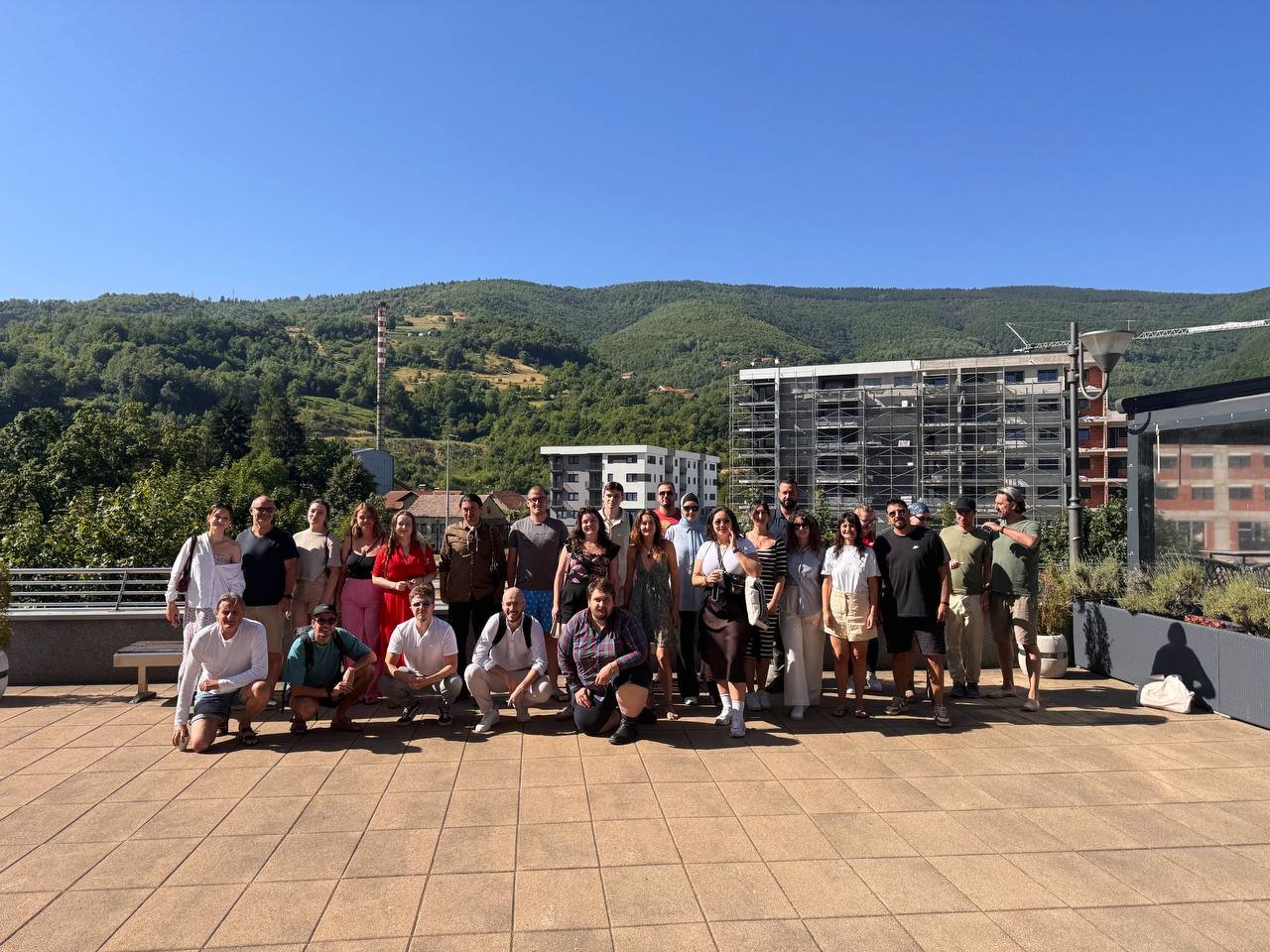Swiss Balkan Design Bridge Summer School: A Resounding Success in Cross-Cultural Innovation
High-Level Recognition at Final Presentations
The program's final day was graced by distinguished guests, including Nils Krauer, Deputy Head of Cooperation from the Swiss Embassy in Bosnia and Herzegovina, and Amir Vrhovac, representative of Travnik city administration. Their presence underscored the significance of this cross-cultural initiative and its potential for long-term impact.
Four Teams, Four Success Stories
All four mixed teams of Bosnian and Swiss participants delivered exceptional presentations, offering practical and implementable solutions to their partner companies:
- Nobil (mattress manufacturing) - Innovative approaches to product development and market positioning
- Ljekobilje Grabus (medicinal herbs) - Creative strategies for market expansion and product diversification
- Ukusno ko kod nane (traditional foods) - Solutions bridging heritage with modern consumer needs
- Eko koliba Bernard Rice (sustainable agriculture) - New approaches to eco-friendly outdoor activities
The solutions presented were not theoretical exercises but actionable strategies that companies can implement immediately. i-platform commits to following up on these projects throughout the coming year, ensuring the continuity of impact beyond the summer school.
Cultural Immersion and Historical Exploration
Beyond the intensive workshops, participants experienced Bosnia and Herzegovina's rich cultural heritage through carefully curated cultural activities led by Enes Škrgo, who guided the historical and cultural components of the program. On the first day, participants enjoyed a comprehensive tour through Travnik under his expert guidance, while later in the week an excursion day included visits to the medieval necropolis of Stećci at Maculje and the monumental Bogdanović memorial at Smrike - connecting with the deep historical roots of the region.
International Evening: Cultural Exchange at Its Best
The night before final presentations, participants organized a memorable International Evening at the historic fortress of Travnik's Old Town. In a creative twist, Swiss participants presented about Bosnia and Herzegovina, while Bosnian participants showcased Switzerland - demonstrating how deeply they had absorbed each other's cultures during their week together.
Creating New Learning Spaces
Professor Ivica Petrušić from HSLU reflected on the program's deeper significance: "I am pleased that we successfully brought this complex and challenging story to such a high level - a story we began together, combining formal and non-formal education, theory and practice, young people from different cultural and theoretical spheres. Everyone wants this not to be an end, but for participants and local partners to be interested in meeting again."
He emphasized the program's transformative approach: "We don't talk about paradigm change in a post-colonial world - we create new learning spaces where everyone looks each other in the eye at the same level. There is no hierarchy, only different experiences and life practices that encourage each other to develop themselves and the society around us."
Milijana Mršić, business psychology expert and program facilitator, observed the exceptional dedication of participants: "This process was never just about a method - it was about team collaboration. It was exceptional to see how dedicated the students were. They wanted to make a real difference for the people they met behind the companies. It went beyond what I expected."
Her professional insights highlighted key success factors: "Productive tensions are not contradictions, they are key. Self-organization in teams needs alignment. Structure can support creativity. And cross-cultural ways of working go hand in hand."
Leadership in Times of Change
The program's success was reflected in the words of mentor Andreas Jaeger Fontana from HSLU, who noted: "In times of uncertainty, leaders seek the comfort of control. Yet, the time of command-and-control is gone and needs to be replaced by a leadership style of trust-and-questions."
He emphasized how the program embodied this new approach to education: "Teachers need to become learning process coaches, helping students in the art of asking questions to diagnose real-world problems, resisting the tendency to jump too quickly to solutions."
Not Goodbye, But See You Later
Program coordinator Aldin Vrskic emphasized that this conclusion marks the beginning of ongoing cooperation: "This project is not goodbye but more 'see you later.' We are positive about continuing this cooperation and building on the foundations established this week."
The success of Swiss Balkan Design Bridge demonstrates the power of cross-cultural collaboration in addressing real-world challenges while strengthening ties between the diaspora and homeland, as well as combining formal and non-formal methodologies in youth work.
Acknowledgments
Special recognition goes to:
- Movetia - Swiss National Agency for Mobility and Exchange (funding partner)
- Lucerne University of Applied Sciences and Arts (HSLU) - academic partner
- Educational team: Milijana Mršić, Nermin Zejnilović, and Ivica Petrušić
- Mentors: Andreas Jaeger Fontana and Oliver Kessler
- Local partners: Travnik city administration and participating companies
Looking Forward
The Swiss Balkan Design Bridge has established a model for sustainable cross-cultural collaboration that creates tangible value for local businesses while fostering international understanding. Plans are already underway for continuation of this successful partnership in the coming year.
Swiss Balkan Design Bridge is funded by Movetia - Swiss National Agency for Mobility and Exchange, and implemented by i-platform in partnership with Lucerne University of Applied Sciences and Arts (HSLU).

